Date: 15 September 2008
This year, Glasstech has expanded into an area it understands quite well, processing of parts for solar energy collection.
Glasstech’s specialized systems, based on its production-proven technology, are ideal for bending glass parts for parabolic troughs used in concentrated solar power applications as well as for the extremely flat panels used in photovoltaic solar modules.
Reporters and media representatives are urged to visit Glasstech in Hall 13, C49, during the show. Appointments and interviews are encouraged and can be arranged in advance by contacting Matt Schroder (mschroder@hartinc.com) prior to the beginning of the show.
Glasstech Features High-productivity Automotive,
Architectural and Solar Glass Systems at Glasstec 2008
Perrysburg, Ohio, U.S.A. Glasstech, Inc., the leading innovator of bending and tempering systems for the worldwide automotive, architectural and solar glass markets, will feature an array of the world’s most innovative and advanced glass processing systems at glasstec 2008, October 21 to 25, at the Dusseldorf Fairgrounds, Dusseldorf, Germany, Hall 13, C49.
Automotive Systems .jpg) Glasstech’s family of EPB automotive systems enable manufacturers to produce sidelites, quarterlites, backlites, laminated backlites and windshields that meet stringent optical quality requirements. EPB systems process with tight tolerances and produce parts with reflective and transmitted optics. The patented EPB-T-DS™ (dual-stream) Bending and Tempering System can press-form parts in as little as 3.5 seconds per part.
Glasstech’s family of EPB automotive systems enable manufacturers to produce sidelites, quarterlites, backlites, laminated backlites and windshields that meet stringent optical quality requirements. EPB systems process with tight tolerances and produce parts with reflective and transmitted optics. The patented EPB-T-DS™ (dual-stream) Bending and Tempering System can press-form parts in as little as 3.5 seconds per part.
The EPB family of systems includes the following three systems:
- EPB-L™ system for forming and annealing windshield glass
- EPB-T-SS™ system for forming and tempering a single-stream of sidelites
- EPB-T-DS system for forming and tempering a single backlite or a dual-stream of sidelites.
Glasstech has added Quick Change and Fast Cycle options to its automotive industry-leading Advanced Bending and Tempering System for Deep Bend™ Automotive Glass, the DB 4. The Quick Change option reduces tooling changeover time to 90 minutes. The Fast Cycle option reduces cycle times on average to 17 seconds. Taken together, the two options can increase productivity up to approximately 40 percent. .jpg) Additionally, Glasstech researchers have demonstrated a significant reduction in DB 4 off-form losses caused by upstream/downstream position variation. Also, new methods have been developed to run some parts two-at-a-time, increasing productivity, using energy more efficiently and reducing fabrication costs.
Additionally, Glasstech researchers have demonstrated a significant reduction in DB 4 off-form losses caused by upstream/downstream position variation. Also, new methods have been developed to run some parts two-at-a-time, increasing productivity, using energy more efficiently and reducing fabrication costs.
Architectural Systems .jpg) For processors involved in the architectural glass market, Glasstech offers the world’s leading systems for the efficient tempering of Low-E glass – The Architectural FCH2™ Forced Convection Heater Flat Glass Tempering System and the Architectural ERH2-C2™ Electrical Radiant Heater Flat Glass Tempering Systems.
For processors involved in the architectural glass market, Glasstech offers the world’s leading systems for the efficient tempering of Low-E glass – The Architectural FCH2™ Forced Convection Heater Flat Glass Tempering System and the Architectural ERH2-C2™ Electrical Radiant Heater Flat Glass Tempering Systems.
Glasstech’s FCH2 Forced Convection System, fired by natural gas, can heat clear glass at a typical rate of 30 seconds per millimeter of thickness and high-performance, soft-coat Low-E glass at a typical rate of 33 seconds per millimeter. This reduced heating time yields higher quality, dramatically improves productivity and reduces processing cost.  Convection nozzles on Glasstech’s electric radiant heater system, the ERH2-C2, are located above the glass line and deliver heat to the top coated surface of the glass, improving heating time for Low-E coated glass to 40-50 seconds per millimeter of thickness, compared to a standard radiant heating system’s 70 seconds per millimeter.
Convection nozzles on Glasstech’s electric radiant heater system, the ERH2-C2, are located above the glass line and deliver heat to the top coated surface of the glass, improving heating time for Low-E coated glass to 40-50 seconds per millimeter of thickness, compared to a standard radiant heating system’s 70 seconds per millimeter.
Solar Systems
Glasstech’s technology meets the solar energy industry’s burgeoning demand for flat and bent glass substrates. Glasstech has developed specialized systems that meet the solar industry’s requirement for repeatability, tight specifications and cost effectiveness. Glasstech’s Cylindrical Radius Bender – Solar Parabolic Shapes (CRB-S™) is the most efficient and precise system in the world for the processing of parabolic trough reflector glass shapes for concentrated solar power (CSP). The system processes glass from 1.6mm up to 5.0mm, depending on the surface-strengthening treatment required.
The CRB-S forms constant radius shapes, J-bends and the other parabolic trough shapes using patented, computer-controlled technology, instead of dedicated tooling. Shape changes on the CRB-S take only minutes. Additionally, the CRB-S can produce low-stress glass for lamination and heat strengthened or fully tempered glass parts with minimal system changes. And, as the system utilizes no molds, energy savings versus a gravity sag mold process is significant, since only the glass is heated in the Glasstech CRB-S. .jpg) For the photovoltaic market (PV), the Glasstech Electric Radiant Heater – Solar Features (ERH-S™) and the Forced Convection Heater – Solar Features (FCH-S™) offer the highest productivity flat-glass systems meeting the solar industry’s very precise flatness specifications.
For the photovoltaic market (PV), the Glasstech Electric Radiant Heater – Solar Features (ERH-S™) and the Forced Convection Heater – Solar Features (FCH-S™) offer the highest productivity flat-glass systems meeting the solar industry’s very precise flatness specifications.
The ERH-S is a continuous tempering line featuring Glasstech’s electric radiant heater. The system will flat temper high transmission (low-iron) glass for cover panels and active (coated) glass as well as clear glass for PV panels. The ERH-S processes these glass parts at fast cycle times with highly accurate perimeter and surface tolerances.
For a system that also will process Low-E glass, an electric convection heater can be selected as an option. Glasstech’s gas-fired convection heater system, the FCH-S, also is a continuous flat-tempering system. The FCH-S requires less floor space than the ERH and achieves the speeds and tolerances so important to the PV market. In most countries, the FCH-S offers a significant energy cost savings, when compared to an electrically heated system.
Auto Glass Inspection
Glasstech’s recently introduced AutoGlassInspector™ (AGI) efficiently and automatically quantifies the optical quality of automotive backlites and windshields. The in-line system numerically evaluates the transmitted optical distortion in a just-formed glass part and digitally compares it to the industry’s recently emerged, de facto world standard, the VW-authored TL957 standard for optical distortion.
The AGI’s powerful state-of-the-art analysis computer scrutinizes a part in less than 10 seconds and displays the results on a video screen. This affordable solution is usable on Glasstech and other glass processing systems.
About Glasstech
Glasstech, Inc., based in Perrysburg, Ohio, is the leading, world-class innovator of highly productive bending and tempering systems used to supply the worldwide automotive, architectural and solar glass markets. Glasstech glass bending and tempering systems have become standards for the efficient fabrication of high-quality glass products.

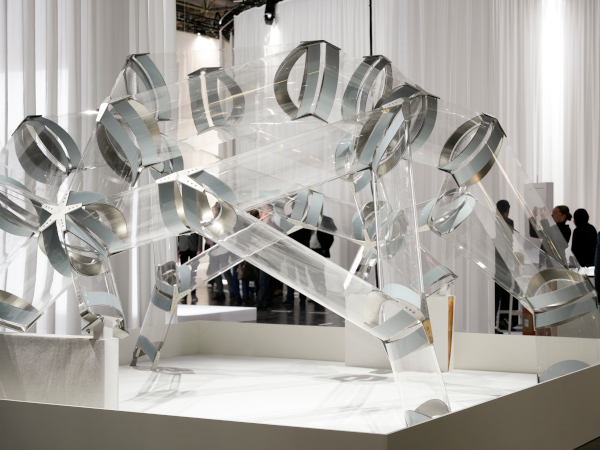
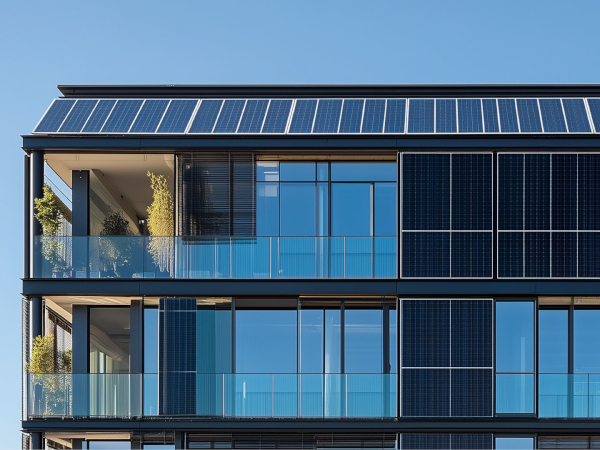
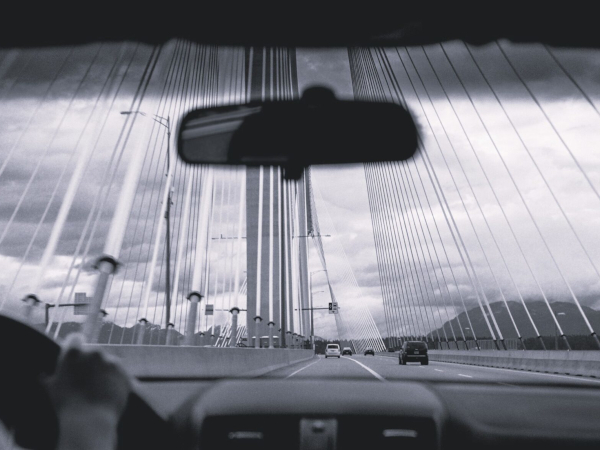
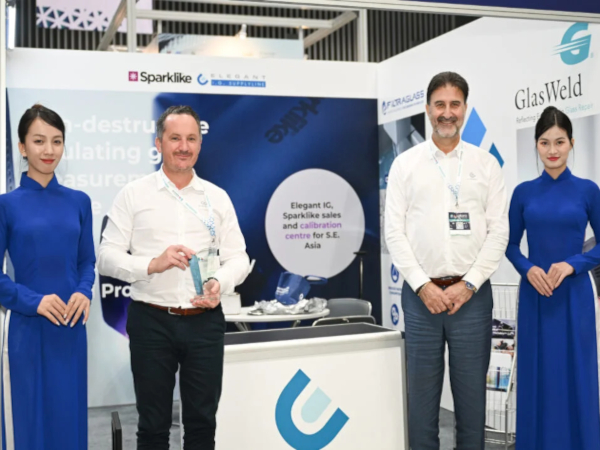

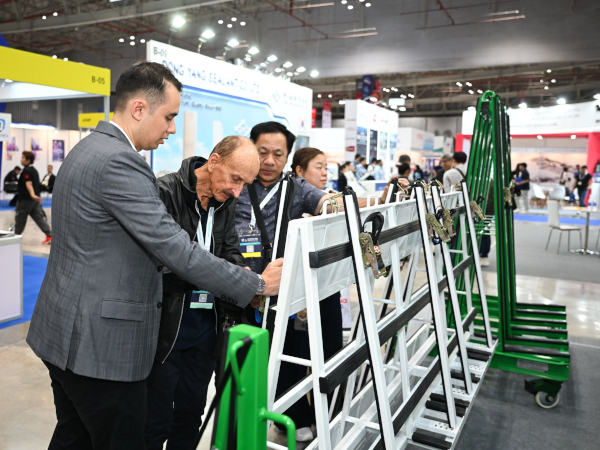








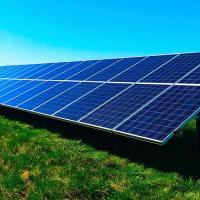
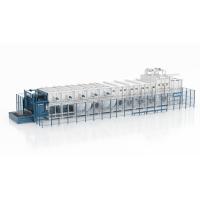
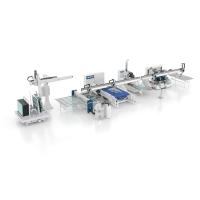
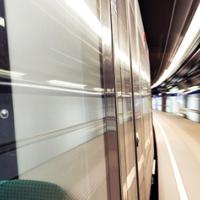
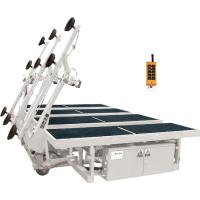
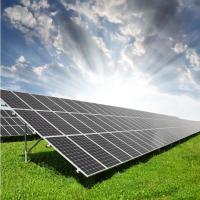
Add new comment